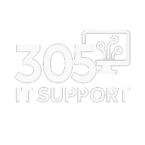APPLICATIONS

Turn Your Business Applications Into
a Competitive Advantage
New technologies are accelerating the pace of business. But existing IT strategies lag. Companies need to fundamentally redefine the application ecosystem they use to deliver market-disrupting products and services.
Software is now a basis for differentiation and innovation. The business applications you use can open new revenue streams, create seamless customer experiences and accelerate your time to market.
More than ever, your software and technology strategy is your business strategy. The ability to roll out business capabilities continuously will be the difference between companies that stagnate and ones that evolve.
QuickBooks
We ensure your QuickBooks remains available 24/7 – with real-time collaboration among inventory managers, accounting teams, and all other end users. With our help, QuickBooks will be safe, dependable, and worry-free!
App Hosting / Setup
Our cloud architects will analyze your unique business objectives, environment, and workload requirements to design the ideal cloud solution to transform how employees and customers engage with your apps.
App Migrations
Strictly MSP provides you with a dedicated team to plan, budget, and execute any app migration scenario to bring your business into the future. Our experts will ensure your migrations across all on-premise and cloud architectures go off without a hitch!
A hosted application is any piece of software that is running on another provider’s infrastructure rather than on-premise. These hosted applications are accessed over the internet and have a web- based user interface to be able to interact with. An example of a hosted application is WordPress. When you want to blog, instead of downloading WordPress on your computer, installing it, and then configuring it to work before you even write your first draft; you can simply head over to WordPress.com which is a hosted version of WordPress where you don’t have to deal with any of the setups. This is because the provider has already done the hard work for you by hosting the application in the cloud for you.
SaaS is generally an application written by a software vendor who hosts it on a web server and it is accessed over the Internet using a web browser. Long standing examples of this would be Google’s Gmail or Microsoft’s Hotmail where users go to a website to see their messages instead of installing a mail application such as Outlook on their computers.
More defined examples might be services like Salesforce or Zoho which are Customer Relationship Management applications accessed over the Internet from browsers instead of the traditional, on premise, “Client-Server” applications. In fact these type of applications are clear examples of where SaaS is replacing the traditional desktop install model.
Software as a Service may also include “services” provided via the Internet to other applications, whether onsite or hosted for example the ability to logon to an application using your Facebook or Twitter account. In this case Facebook is providing the service.
These would all come under the umbrella terms of: Internet based applications, hosted software, web applications or online applications.
While the SaaS applications are generally designed to run within a browser, some applications require a dedicated “Client” to run them, providing more advanced features and functionality or better performance that can’t be provided within the confines of a browser. Traditionally the client application would have been installed on a local PC and if it required a shared database then this would have been stored on a server on the user’s local network.
Larger organisations with multiple sites all wanting to work on the same database may take advantage of a technology called “Terminal Services”. This enabled the client application itself to be installed on a server near the database but the screen output from that application would be displayed on the users’ desktop at a remote site, so would appear as if it was installed on their PC.
With the recent increase in Internet bandwidth it is now possible to run terminal server based applications over the Internet not just on an organisations Wide Area Network (WAN). Many companies are now hosting their client-server applications “in the cloud” as Hosted Applications allowing them to access then anywhere over the Internet. The terminal server software installed on PCs also have versions for non-Windows devices running Mac, iOS and Android, this means that almost any application can become a “Cloud” application running on any device.
These type of applications come under the umbrella terms of: Remote Apps, Remote Applications, WebApps, Terminal Services applications, and more widely as part of Hosted Desktops or Remote Desktop Services.
Three reasons: convenience, security, cost.
By using hosted applications, whether Software as a Service or desktop applications on a hosted terminal services platform businesses have all the convenience and flexibility that cloud computing offers, meaning they can run applications from anywhere via the Internet.
As all the infrastructure is maintained by the hosting provider businesses no longer need to worry about IT, that is someone else’s problem. Hosting providers will be geared up to manage infrastructure on a large scale with redundancy built in along with managed backups, updates, patches and anti-virus.
Changes to applications such as updates or upgrades just have to be done once on the server not on every PC.
With a Hosted Application there is rarely any up-front costs, usually a monthly subscription with perhaps a small setup fee depending upon the complexity of your environment.
